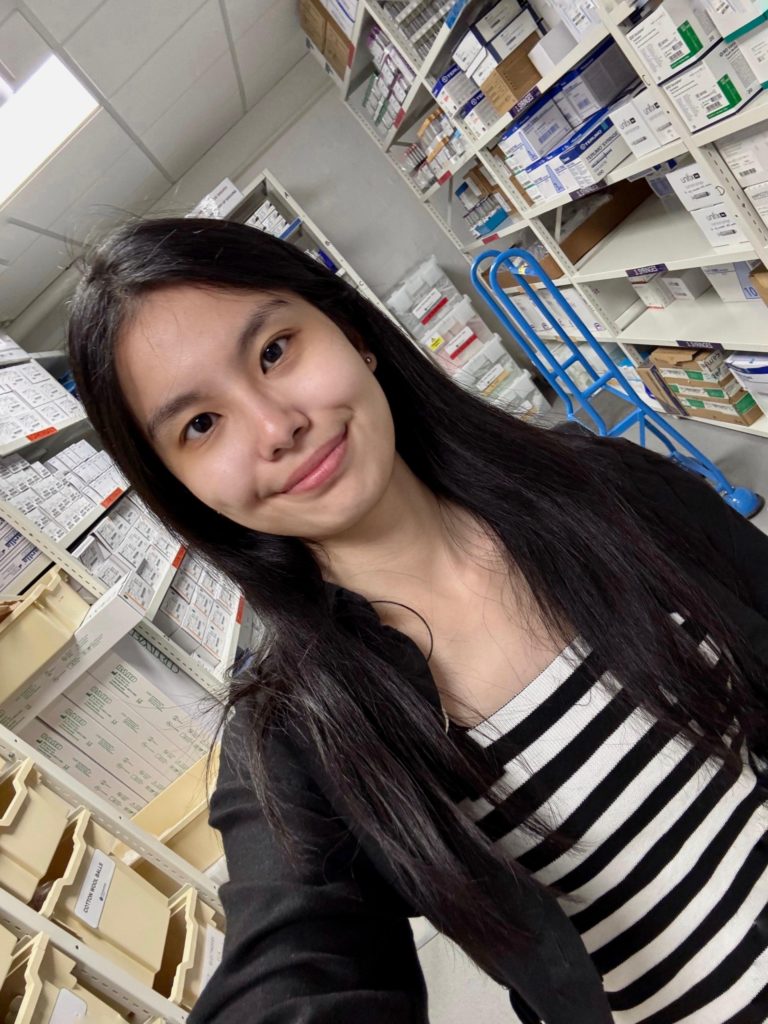
Student Name: Sabrina
Pathways Programme: Pathways to Scientific Laboratories
Internship Role: Assistant Technician
Internship Employer: Clinical Skills Resource Centre, Heavitree Hospital
Summary of Organisation: Students learn clinical and communication skills in a safe environment within the Clinical Skills Resource Centre (CSRC) before using them in a real clinical setting. The facilities include large teaching rooms, models for learning all practical aspects of medicine required in the clinical environment and dedicated communication skills rooms with video capability. We have simulation suites fitted with equipment to run a wide variety of scenarios designed to teach and test students in a safe environment. The CSRC contains state-of-the-art electronic patient simulators, mock NHS wards and emergency departments. Students learn to gather information, carry out physical examinations, conduct patient and family interviews, develop your diagnostic skills and perform a variety of practical procedures including injections, venepunture and basic life support.
Please briefly outline the project/tasks/responsibilities you worked on during your Professional Pathways internship:
“Throughout the internship, I assisted with setting up and resetting simulation teaching laboratories, ensuring they were prepared for student sessions and examinations. My responsibilities included preparing session boxes, auditing Airway Management kits, and supporting stock-taking to maintain readiness and accuracy. I also gained hands-on experience by helping with the cleaning and maintenance of the Arterial Blood Gas (ABG) wrist model, and had the chance to observe technicians operating advanced simulation equipment such as SIM Man from the control room.”
How has the Professional Pathways programme helped you in taking the next steps in your career?
“The Professional Pathways programme gave me valuable insight into applying academic knowledge in a professional healthcare environment. The training helped me develop key employability skills such as teamwork, problem-solving, and communication, while also introducing me to the variety of technical roles that support healthcare and research. Attending the Technician Conference further highlighted the importance of technician contributions and broadened my perspective on career pathways. The internship then built on this by giving me hands-on experience, confidence in working alongside professionals, and a clearer sense of my interest in healthcare and psychology-related roles. It also strengthened transferable skills such as adaptability and attention to detail, which I can carry forward into future opportunities.”
Given the Professional Pathways internship is 35 hours in total, what advice would you give to other students to ensure they gain as much as possible from the experience?
“My advice would be to approach the internship with curiosity and proactiveness. As 35 hours go by quickly, it is important to engage fully from the start by observing carefully, asking questions, and volunteering for tasks wherever possible. Taking notes of your experiences can also help to reflect on what you have learned and identify transferable skills for future opportunities. I would also suggest speaking to the staff you work with about their career pathways, as these conversations can give valuable insight into options you may not have considered before.”
Why would you recommend the Professional Pathways programme to other students?
“I would recommend the Professional Pathways programme as it offers a unique combination of structured training and practical work experience. The programme not only helps build practical skills but also expands professional networks, boosts confidence, and enhances employability. It is an excellent stepping stone for students who want to explore career options and gain meaningful experiences that make them stand out to future employers.”
